Jeep Avenger vs VW ID.4 - Differences and prices compared
Compare performance (156 HP vs 340 HP), boot space and price (21900 £ vs 34600 £ ) at a glance. Find out which car is the better choice for you – Jeep Avenger or VW ID.4?
Costs and Efficiency:
Price and efficiency are often the first things buyers look at. Here it becomes clear which model has the long-term edge – whether at the pump, the plug, or in purchase price.
Jeep Avenger has a clearly advantage in terms of price – it starts at 21900 £ , while the VW ID.4 costs 34600 £ . That’s a price difference of around 12630 £.
In terms of energy consumption, the advantage goes to the Jeep Avenger: with 15.50 kWh per 100 km, it’s barely noticeable more efficient than the VW ID.4 with 15.60 kWh. That’s a difference of about 0.10 kWh.
As for electric range, the VW ID.4 performs noticeable better – achieving up to 569 km, about 169 km more than the Jeep Avenger.
Engine and Performance:
Under the bonnet, it becomes clear which model is tuned for sportiness and which one takes the lead when you hit the accelerator.
When it comes to engine power, the VW ID.4 has a convincingly edge – offering 340 HP compared to 156 HP. That’s roughly 184 HP more horsepower.
In acceleration from 0 to 100 km/h, the VW ID.4 is convincingly quicker – completing the sprint in 5.40 s, while the Jeep Avenger takes 9 s. That’s about 3.60 s faster.
In terms of top speed, the Jeep Avenger performs slight better – reaching 194 km/h, while the VW ID.4 tops out at 180 km/h. The difference is around 14 km/h.
There’s also a difference in torque: VW ID.4 pulls decisively stronger with 679 Nm compared to 260 Nm. That’s about 419 Nm difference.
Space and Everyday Use:
Beyond pure performance, interior space and usability matter most in daily life. This is where you see which car is more practical and versatile.
Both vehicles offer seating for 5 people.
In curb weight, Jeep Avenger is decisively lighter – 1180 kg compared to 1975 kg. The difference is around 795 kg.
In terms of boot space, the VW ID.4 offers noticeable more room – 543 L compared to 380 L. That’s a difference of about 163 L.
In maximum load capacity, the VW ID.4 performs slightly better – up to 1575 L, which is about 298 L more than the Jeep Avenger.
When it comes to payload, VW ID.4 minimal takes the win – 551 kg compared to 502 kg. That’s a difference of about 49 kg.
Who wins the race in the data check?
The VW ID.4 is clearly superior overall in the objective data comparison.
This result only shows which model scores more points on paper – not which of the two cars feels right for you.
Costs and Consumption
View detailed analysis
Engine and Performance
View detailed analysis
Dimensions and Body
View detailed analysis
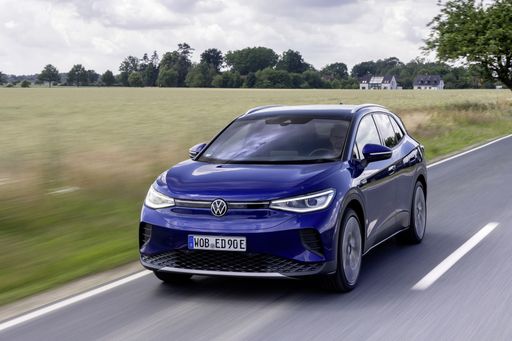
VW ID.4
Jeep Avenger
The Jeep Avenger shrinks Jeep's boxy, adventurous styling into a city-friendly electric crossover that looks just as at home on tight streets as it does on muddy weekend lanes. It's a savvy pick for drivers who want go-anywhere attitude without the truck-size ego — practical inside, lively around town and ready to tackle a bit of rough stuff when the mood strikes.
details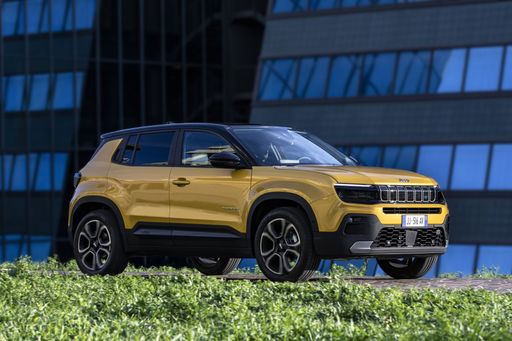
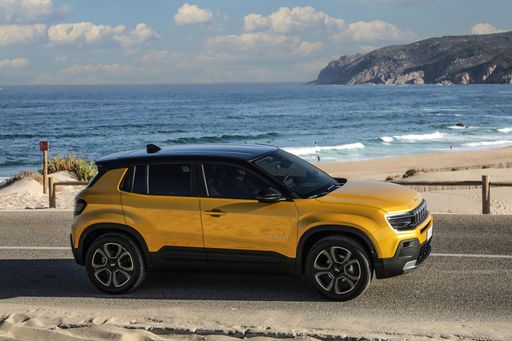



VW ID.4
The VW ID.4 is a calm, roomy electric SUV that turns everyday driving into a quietly confident experience, its practical packaging and smooth manners tailored perfectly for family life. Volkswagen's solid build and intuitive interior tech mean you get electric practicality without the sci‑fi theatrics, making the ID.4 a sensible, surprisingly likable choice for most buyers.
details
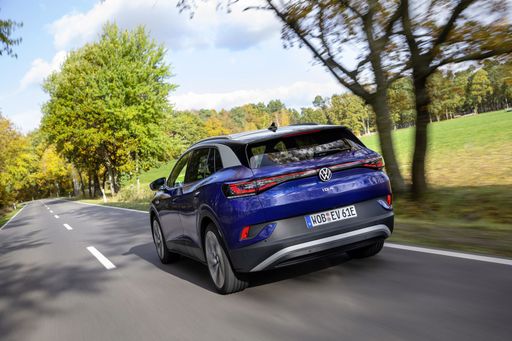
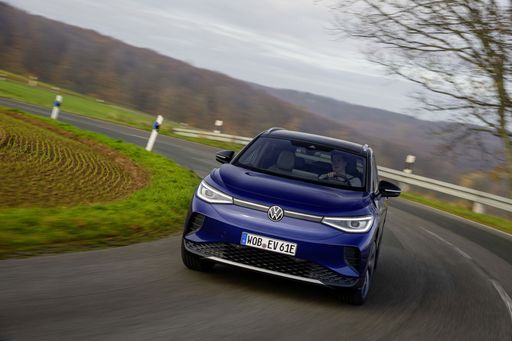
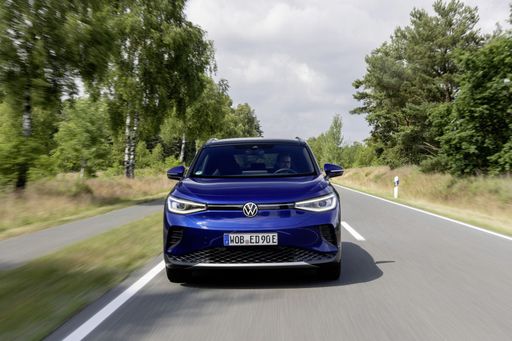
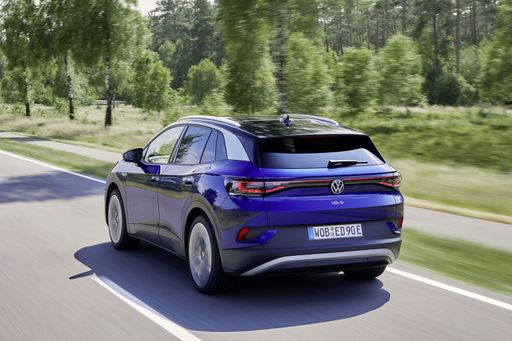

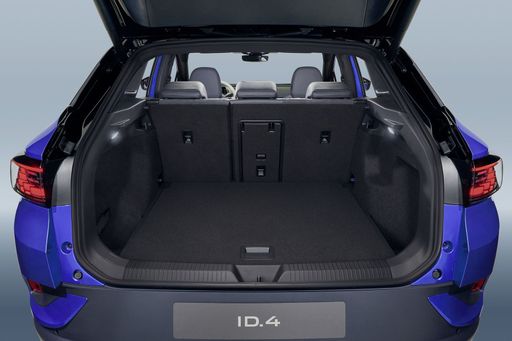
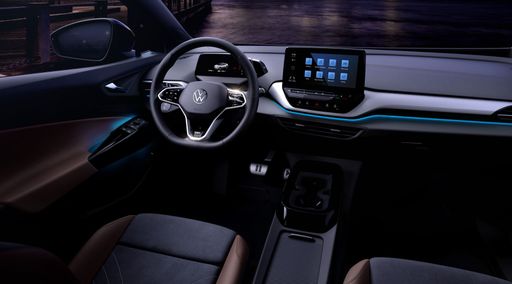
Costs and Consumption |
|
|---|---|
|
Price
21900 - 36900 £
|
Price
34600 - 47200 £
|
|
Consumption L/100km
4.9 - 5.7 L
|
Consumption L/100km
-
|
|
Consumption kWh/100km
15.50 kWh
|
Consumption kWh/100km
15.6 - 17 kWh
|
|
Electric Range
400 km
|
Electric Range
356 - 569 km
|
|
Battery Capacity
51 kWh
|
Battery Capacity
52 - 77 kWh
|
|
co2
0 - 129 g/km
|
co2
0 g/km
|
|
Fuel tank capacity
44 L
|
Fuel tank capacity
-
|
Dimensions and Body |
|
|---|---|
|
Body Type
SUV
|
Body Type
SUV
|
|
Seats
5
|
Seats
5
|
|
Doors
5
|
Doors
5
|
|
Curb weight
1180 - 1520 kg
|
Curb weight
1975 - 2248 kg
|
|
Trunk capacity
325 - 380 L
|
Trunk capacity
543 L
|
|
Length
4084 - 4088 mm
|
Length
4582 - 4584 mm
|
|
Width
1776 mm
|
Width
1852 mm
|
|
Height
1527 - 1541 mm
|
Height
1619 - 1634 mm
|
|
Max trunk capacity
1218 - 1277 L
|
Max trunk capacity
1575 L
|
|
Payload
494 - 502 kg
|
Payload
515 - 551 kg
|
Engine and Performance |
|
|---|---|
|
Engine Type
Electric, Petrol, Petrol MHEV
|
Engine Type
Electric
|
|
Transmission
Automatic, Manuel
|
Transmission
Automatic
|
|
Transmission Detail
Reduction Gearbox, Manual Gearbox, Dual-Clutch Automatic
|
Transmission Detail
Reduction Gearbox
|
|
Drive Type
Front-Wheel Drive, All-Wheel Drive
|
Drive Type
Rear-Wheel Drive, All-Wheel Drive
|
|
Power HP
100 - 156 HP
|
Power HP
170 - 340 HP
|
|
Acceleration 0-100km/h
9 - 10.6 s
|
Acceleration 0-100km/h
5.4 - 9 s
|
|
Max Speed
150 - 194 km/h
|
Max Speed
160 - 180 km/h
|
|
Torque
205 - 260 Nm
|
Torque
310 - 679 Nm
|
|
Number of Cylinders
3
|
Number of Cylinders
-
|
|
Power kW
74 - 115 kW
|
Power kW
125 - 250 kW
|
|
Engine capacity
1199 cm3
|
Engine capacity
-
|
General |
|
|---|---|
|
Model Year
2023 - 2025
|
Model Year
2023 - 2025
|
|
CO2 Efficiency Class
A, D, C
|
CO2 Efficiency Class
A
|
|
Brand
Jeep
|
Brand
VW
|
What drivetrain options does the Jeep Avenger have?
Available configurations include Front-Wheel Drive or All-Wheel Drive.




